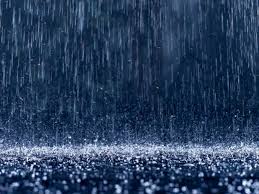The whole of last week and this week the people of Gokwe were receiving the first rains, marking the beginning of the 2020/1 farming season.
This came with a great shock to people as its impact hit them negatively.
For the people of Chigoronga village in the Gokwe Kabuyuni Constituency in Gokwe North, the first rains were a great disaster. It is a time when they are trying to finish up their dam construction project. Other communities around them such as Zhomba, Mareka, Rusiye, Chitekete and Chiutsi are done with theirs.
So they are compelled to speed up the process but the challenge is that people are now busy in their fields on land preparation and no longer coming. Again, they are not getting any aid from the government, well-wishers and the donor community. Hence, there is a great fear that the entire project might fall but placing a great danger to the entire village down the stream.
“This year what happened at Chimanimani may likely befall us. It’s now up to God to delay the rains and also install the spirit of cooperation among the people so that that project is completed. So far people have to work on the spill-way to serve our lives,” said one of the villagers.
However, the first rains came at a time other people were already busy digging holes for the Pfumvudza scheme. The first rains to such people signals a danger to the success of the project.
“I dug the holes and did everything that is expected. Inspector, Mr Sibanda came for supervision and monitoring. We haven’t yet received the promised inputs. So I’m afraid all the holes will be destroyed by the rains before planting,” said a farmer from the Villa Village in Gokwe North.
To others it signals the power of the local rain-maker, Nevana whose residents and shrine is at the Nemangwe Chieftainship.
“Normally, these first rains are a signal to the power of Nevana. This is a time when the local mediums consult Nevana for the fertility of the coming season. Their visit is followed by some rains or winds, wiping out their foot-prints to the shrine. So this is a signal that we are already behind for the coming season,” said Mr Mnsaka.
Most of the farmers agreed with Mr Mnsaka that they are really behind in terms of preperations for the coming season. They complained that they have not yet prepared enough inputs.
“The seed is very expensive going for USD25 a 10kg maize seed. Cotton companies gave them groceries so they don’t have seed. The local business people charge more than the Black market equivalent if one is paying on ecocash. They don’t even know the prize of fertilizers and herbi/pesticides because so far everyone is pre-occupied by acquiring the seed,” said one of the local Agricultural Extention Workers.
Following cotton companies failure to pay their farmers on hard cash, some farmers turned to poultry as a means to raise revenue. However, in other parts such as Manoti these rains were associated with violent storms leading to a great loss. One such farmer is Courage Nyaningwe who lost almost a half of his 53 Boschveld chicks. Hence, the first rains were a great blow to him since, “I was not prepared, and I never thought that they will be affected. I thought they are now too old enough to survive these little rains, I’m to blame,” he said.
However, some people were happy to see these rains especially women and livestock farmers. Most women revealed that the first rains signals end to water and food crisis.
“Soon we will be gathering insects, reptiles, caterpillars, locusts, vegetables and herbs. Normally, first rains means new life to the plants. They are a relief mostly to women especially in terms of feeding the family. It’s a time we also think about good flowers to decorate our houses and homes. However, we do not rule out the exploitative aspect of it since, women do a lot of work in the fields for example planting and weeding among other duties,” said Gogo Mlalazi.
The story is different for most livestock farmers. They are happy that rains have come and they were afraid of their livestock since all water sources were fast drying out. We talked to Mr Moyo who is a livestock farmer.
“I’m happy, my cattle travelled 16km to Sengwa mine pit to drink water. Every three days they pull a scotch cart full of 600 litters of water. My goat needs 80 litters of water daily and 60 litters for poultry. Women needs water and for a day they utilise about 100 litters on cooking, washing not to talk of bathing.”
However, the beginning of these rains also brings shock to us as farmers. Now we are forced to think about the grazing. We think about threat to the fields and at times you are made to pay. I’m greatly worried I have to lease some of my cattle to the have not, and there they work tirelessly because treatment will never be the same” he said.
So general, the first rains comes with shock and mixed feelings to the people of Gokwe. Others who did not experience these rains have also their own story to tell. We talked to Mr Mbano from Masakadza area.
“I’m afraid, I saw these rains from the surrounding villages but we were left out. There is no any other explanation we are already shut out. The rains have set their own foot. For the whole year the rains will be following the same path. I can count that we are already in drought. If it was possible I was going to migrate my field but eish it’s not possible,” he said.
However, the meteorological department reported that there may be above normal rainfall this year. These October rains might be signals, thus, people are busy on preperations.
Don’t forget to follow us on Facebook, Twitter, Instagram, LinkedIn and Tamblr @mygokwe
